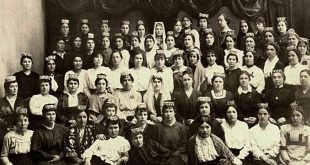The scholarly network Philosophy in the Modern Islamic World organizes the international conference “Philosophy, the Political, and Politics of Translation in the Modern Islamic World” in Berlin, 10-13 March 2025 and calls for proposals concerning, among others, concepts in translation, historical approaches, educational aspects, and philosophical dimensions.
Researchers in the early phases of their academic careers and colleagues from the MENA region are especially encouraged to apply.
Philosophers read, think, and write in various languages, and so do scholars and intellectuals who engage with their works. Translation is an integral part of the philosophical praxis. It often plays a decisive role in the shaping of concepts, the emergence of philosophical currents and the construction of arguments. Translation is an active process of understanding, adapting, and embedding in the conceptual framework to which the translator contributes. This framework, in turn, is simultaneously influencing the very activity of translation and is altered by it. Hence, translation in the philosophical praxis has a political dimension that goes beyond the individual choices of a translator and is embedded in the historical formations of knowledge cultures. For philosophers in the MENA region, the question of translation is particularly important due to the multilingual characteristics of the field, the praxis and its actors, the colonial imprint on epistemological and linguistic formations associated with languages, and the tension between the perceived necessity to participate in European and American philosophical discourses and—at the same time—doing justice to local discourses.
Important Data
Date: March 10-13, 2025
Venue: Berlin, Germany
Abstract Submission Deadline: August 25, 2024
The international conference will address the following aspects:
- Concepts in translation: How are historical difference and identity constructed through (cultural) translation? How do we deal with the problem of particularity versus universality, the local versus the global in the study of concepts in translation? How do historical relations and power differentials between source and target languages influence terminological choices in the translation of concepts?
- Translation as a historical phenomenon between European languages and languages of the MENA region, but also between languages of the MENA region: What is the translation history of a particular work or philosophical current? How is translation inflected by the dimension of the political? How did translation interact with local archives of knowledge and how did these archives develop by way of translation?
- Translations and teaching: How are philosophical works translated for the classroom and what are lacunae in this translation process? How are translations used in various scenarios in the classroom and how is their political dimension addressed? What are good examples of such translations and why?
- Reflection of the practice of translation / “philosophy of translation”: How do translators expand on this issue in their introductions to translations and how do scholars discuss the issue of translation philosophically? How do we reflect ourselves on theory, practice and meaning of translation in our renditions of philosophical works? What are the philosophical implications of particular translation choices?
Interested participants are invited to submit abstracts (max 300 words) on these topics or other related aspects of philosophy, translation, and the political, alongside a short CV by August 25, 2024, to conference25@philosophy-in-the-modern-islamic-world.net.
Travel and accommodation expenses for contributing participants will be covered by the organizers. The official language of the conference is English, but contributions in other languages are possible with a written English translation provided in advance.
Scholarly network Philosophy in the Modern Islamic World (based at Ruhr-Universität Bochum) aims at further developing a newly emerging research field in the German-speaking as well as international academic landscape. In the four years of funding by the DFG (2021-2025), transdisciplinary perspectives are explored in order to sustainably establish research and teaching in the field in constant exchange with colleagues from the MENA region.
 Ijtihad Network Being Wise and Faithful Muslim in the Contemporary World
Ijtihad Network Being Wise and Faithful Muslim in the Contemporary World
